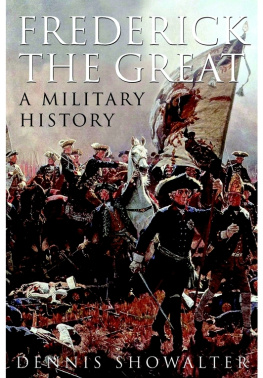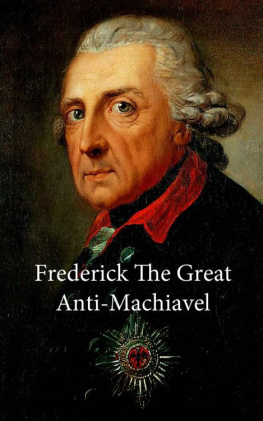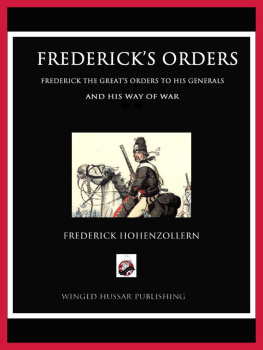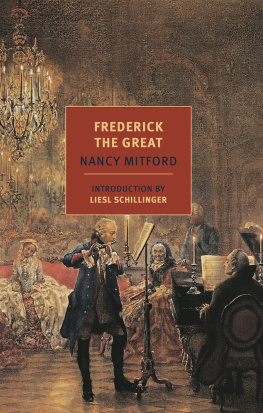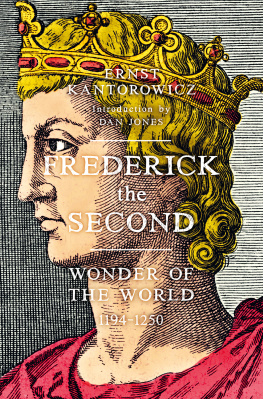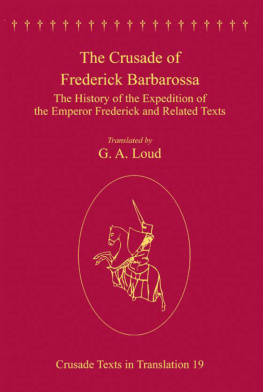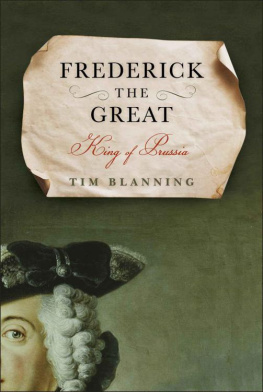The Winter King
For Stephen and Sandra Pursell, whom I cannot thank enough.
First published 2003 by Ashgate Publishing
Published 2016 by Routledge
2 Park Square, Milton Park, Abingdon, Oxon OX14 4RN
711 Third Avenue, New York, NY 10017, USA
Routledge is an imprint of the Taylor & Francis Group, an informa business
Copyright 2003 Brennan C. Pursell
Brennan C. Pursell has asserted his moral right under the Copyright, Designs and Patents Act, 1988, to be identified as the author of this work.
All rights reserved. No part of this book may be reprinted or reproduced or utilised in any form or by any electronic, mechanical, or other means, now known or hereafter invented, including photocopying and recording, or in any information storage or retrieval system, without permission in writing from the publishers.
Notice:
Product or corporate names may be trademarks or registered trademarks, and are used only for identification and explanation without intent to infringe.
British Library Cataloguing in Publication Data
Pursell, Brennan C.
The Winter King : Frederick V of the Palatinate and the coming of the Thirty Years War
1. Frederick, V, Elector Palatine 2. Heads of state Germany Palatinate Biography
3. Thirty Years War, 16181648 4. Palatinate (Germany) History Frederick V,
16101623
I. Title
943.4'35'041'092
Library of Congress Cataloging-in-Publication Data
Pursell, Brennan C., 1967
The winter king : Frederick V of the Palatinate and the coming of the Thirty Years War
/Brennan C. Pursell
p. cm.
Includes bibliographical references.
ISBN 0-7546-3401-9 (alk. paper)
1. Frederick I, King of Bohemia, 15961632. 2. Palatinate (Germany)History. 3. Bohemia (Czech Republic)Kings and rulersBiography. 4. Thirty Years War, 16181648Causes. 5. Thirty Years War, 16181648Historiography. 6. EuropeHistory17th century. 7. Holy Roman EmpirePolitics and government. I. Title.
DB2161.F74 P87 2002
943'.435041'092dc21
[B]
2002032986
ISBN 9780754634010 (hbk)
Typeset by MHL Production Services Ltd, Coventry.
Maps
1 The Holy Roman Empire, c. 1618
2 The Lower Palatinate and its environs
Plates
Between pages 174 and 175.
This study is a contribution to the historiography of the Thirty Years War, the worst military, economic, and demographic disaster to befall Europe during the early modern period. The basic subject is the nature of the war in its crucial, developmental stages. The work questions whether it is entirely correct to classify this immensely complicated conflict as a war of religion. The ostensible subject of the book, the means to approach the problem of classification, is the life and career of Elector Palatine Frederick V, a prince much neglected by professional historians but nonetheless a figure of central importance during the wars inception, intensification, and internationalization. The twentieth century has seen the publication of a handful of articles about Frederick V, but because his role has been misunderstood, we do not have a monograph of this ruler whose aims and actions were very different from what has been assumed, and very important as well.
The subject matter demands that the work combine the elements of biography and political analysis. In historiography, the greatest significance of Frederick V was his role in the development of the Thirty Years War, and any satisfactory understanding of the international political crisis that he helped to induce must take his personality into account. His character, values, and beliefs contributed much to the formation of his political policy. Frederick was only known as the Winter King during the latter portion of his short, troubled life. He never considered himself deserving of this derogatory title, but the course of events and his contribution to them determined that his reign as King of Bohemia would never see more than the passing of a single winter.
Focussing on Frederick V allows for a detailed analysis of the wars causes from the perspective of one of its main contributors. The central argument is that the driving force of the war in its early stages was a struggle between competing visions of the constitution of the Holy Roman Empire. Fredericks constitutionalism incorporated both political and religious interests. His political goal was to maintain German liberty in the face of a perceived move by his enemy, the Habsburg dynasty, to transform the Empire into an absolutist monarchy, and his religious interest was to protect the freedom of worship for Protestant princes and estates in the Empire. Fredericks faith and an obsessive concern for his honor cemented his constitutional convictions and guided his actions and decisions. For these same reasons he never relented, though he was soundly defeated at every turn. He resisted negotiations for peace and rejected all peace treaties. His decisions helped to internationalize the war, which began as a local, religious uprising in Bohemia. Fredericks subsequent expulsion from his lands, the deprivation of his titles, and his unrelenting obstructionism created the Palatine crisis, which broke the fragile peace between the great powers of Europe and provided foreign princes with a motivation, or an excuse, to invade the Empire. He sought for years to establish an international alliance of Protestant and Catholic powers to achieve his constitutional objectives by force, but these efforts ended in failure. The work ends with his death, though the causes for which he fought and suffered were not to be resolved until the wars conclusion in 1648.
This book could not have been completed with the help of many. The greatest thanks go to my supervisors, Mark Kishlansky and Steven Ozment, whose patient guidance over the years deserves more than commendation can confer. I would also like to thank Geoffrey Parker for his indispensable advice at numerous junctures. My gratitude to Dieter Albrecht for his assistance in this project must unfortunately be paid posthumously. His work on this period of history has been an inspiration for my own. I am grateful for advice and support from Paul Seaver, Patrice Higonnet, Heinz Duchhardt, Walter Ziegler, J.H. Elliott, I.A.A. Thompson, Diego Hidalgo, Michael McClean, Peter Haarpaintner, Abt Wolfgang Hagl, Pater Prior Adalbert Seipolt, and the Benedictine community at Metten. Without the generosity of the Deutscher Akademischer Austauschdienst and the Real Colegio Complutense , the research never could have been done. Further gratitude must be expressed to the staff members at the archives and libraries where I worked, especially to those at the Bayerisches Hauptstaatsarchiv in Munich and the Archivo General de Simancas. Sandra Pursells assistance made research in Spain much more efficient than it otherwise might have been, and Irmgard Pursell receives exceptional thanks for her loving support during the hours of need.
A word about conventions: all proper names in the text have been left in their native language, with the exception of kings, popes, and notable princes such as Frederick V. All titles have been translated into English. For example, instead of Herzog , I have used Duke. Where English place names for continental locations are available, I have used them. Mnchen is called Munich, and Kln Cologne. In all transcriptions from sources in English, French, German, Spanish, Italian, and Latin there has been no attempt to modernize spelling, punctuation, or diacritics. Abbreviations have been written out where necessary. In quotations from German manuscripts, the flourishes for accusative and dative noun endings have been transcribed according to the given words modern usage. The obsolete e ending for dative singular nouns has been irregularly observed. For all dates, the year begins on the first of January, and for the numbering of the days I have preferred the Gregorian calendar (New Style) to the Julian (Old Style). In the endnotes, the archival documents that bear an Old Style date will be marked accordingly or will show both the Old and the New day and month.




